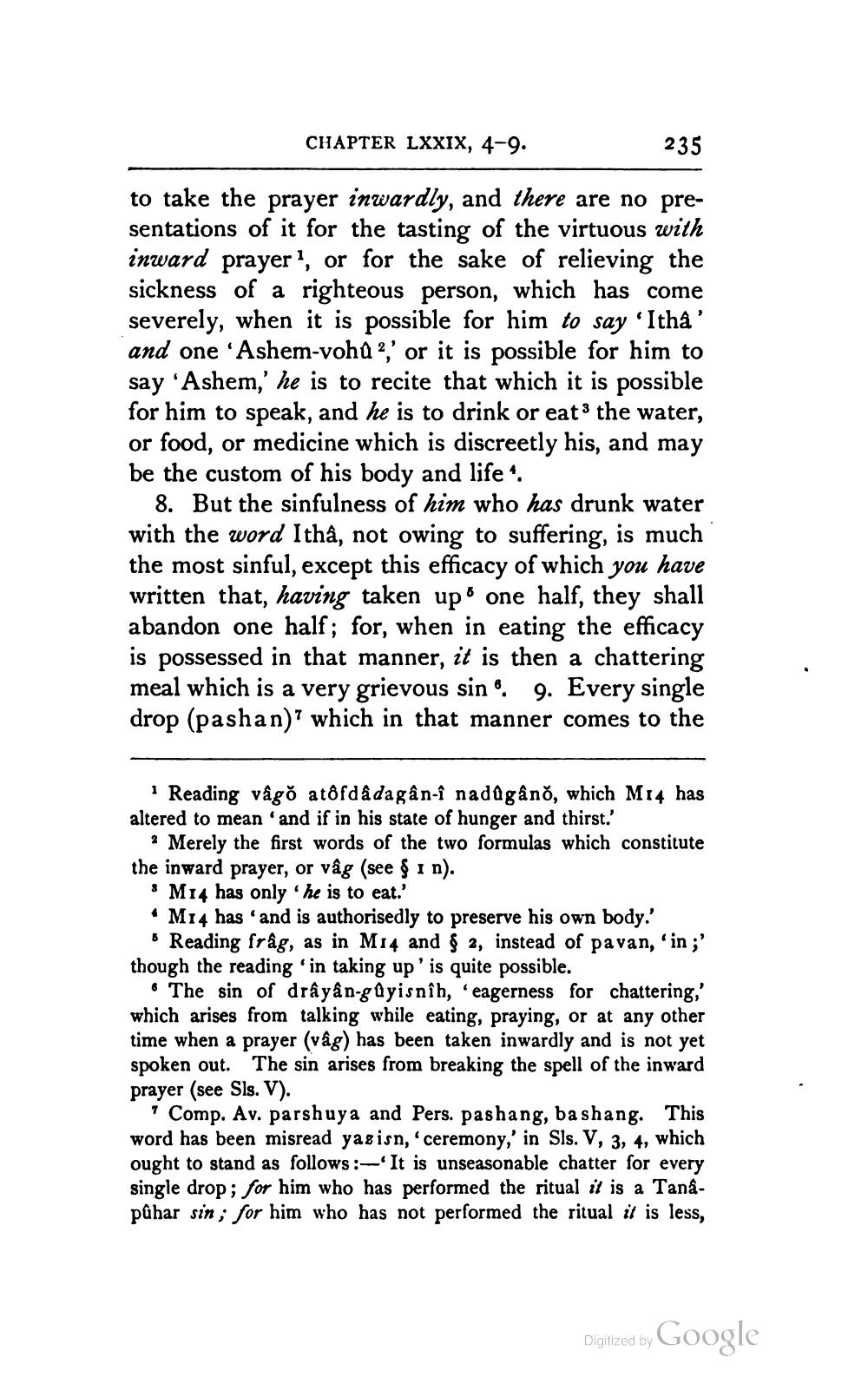________________
CHAPTER LXXIX, 4-9.
235
to take the prayer inwardly, and there are no presentations of it for the tasting of the virtuous with inward prayer, or for the sake of relieving the sickness of a righteous person, which has come severely, when it is possible for him to say “Itha' and one 'Ashem-voha ?,' or it is possible for him to say 'Ashem,' he is to recite that which it is possible for him to speak, and he is to drink or eats the water, or food, or medicine which is discreetly his, and may be the custom of his body and life
8. But the sinfulness of him who has drunk water with the word Ithâ, not owing to suffering, is much the most sinful, except this efficacy of which you have written that, having taken up one half, they shall abandon one half; for, when in eating the efficacy is possessed in that manner, it is then a chattering meal which is a very grievous sin 8. 9. Every single drop (pashan)? which in that manner comes to the
Reading vâgo atôfda da gân-î nadûgâno, which M14 has altered to mean and if in his state of hunger and thirst.'
? Merely the first words of the two formulas which constitute the inward prayer, or våg (see & in).
* M14 has only he is to eat. • M14 has and is authorisedly to preserve his own body.'
• Reading frág, as in M14 and § 2, instead of pavan, 'in ;' though the reading in taking up' is quite possible.
The sin of drâyân-gŵyisnih, eagerness for chattering,' which arises from talking while eating, praying, or at any other time when a prayer (vâg) has been taken inwardly and is not yet spoken out. The sin arises from breaking the spell of the inward prayer (see Sls. V).
? Comp. Av. parshuya and Pers. pashang, bashang. This word has been misread yasisn, ceremony,' in Sls. V, 3, 4, which ought to stand as follows:- It is unseasonable chatter for every single drop; for him who has performed the ritual it is a Tanapühar sin; for him who has not performed the ritual it is less,
Digitized by Google




